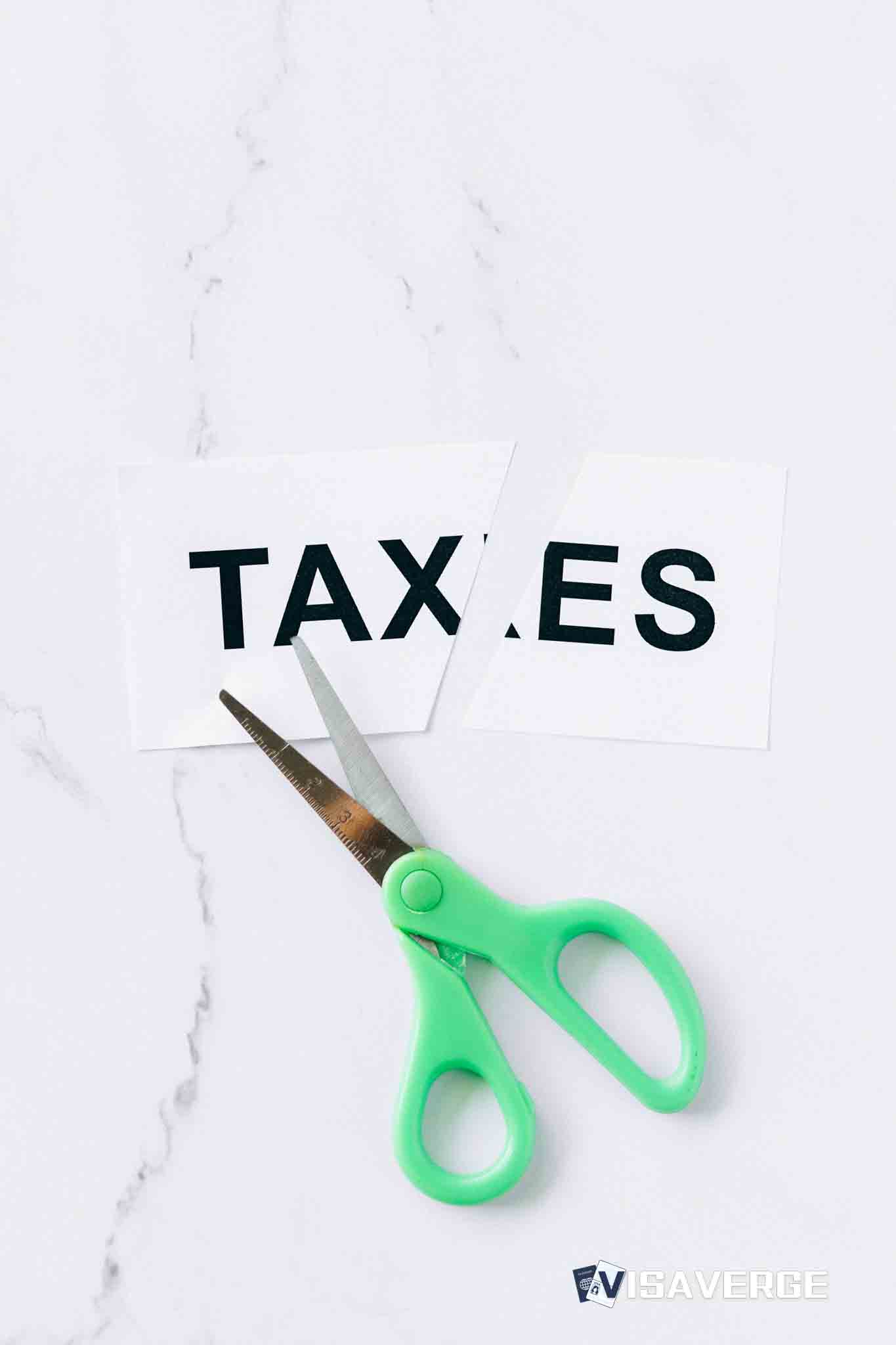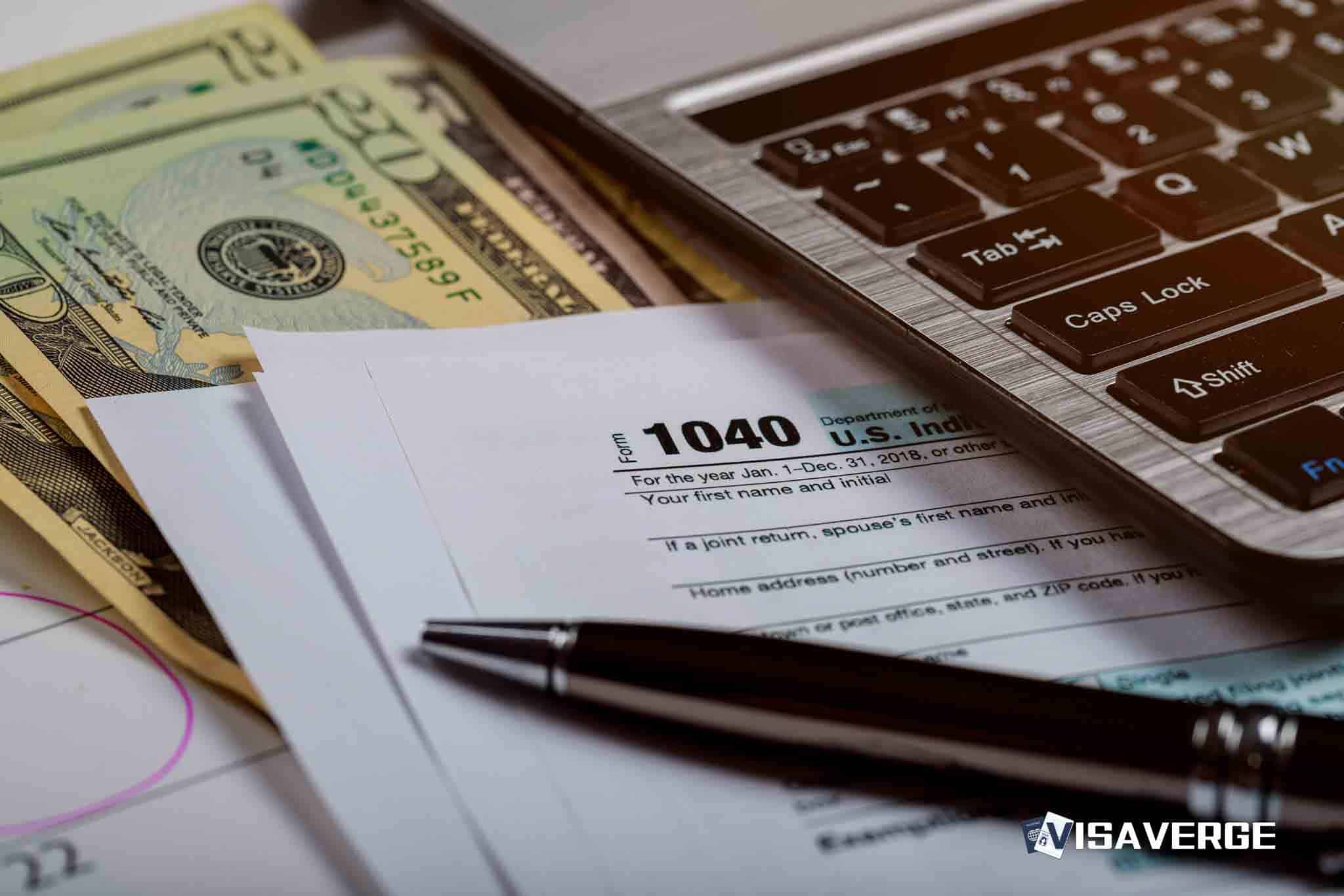Understanding Tax Treaty Benefits for F1 Visa Students
Navigating the tax system as an international student in the United States can be quite daunting. If you’re on an F1 visa, you may find yourself asking: “How can I effectively manage my taxes?” One significant way is by taking advantage of tax treaty benefits that might apply to you. Nearly every year, thousands of F1 visa students leave money on the table simply because they are unaware of the tax benefits available to them. It’s crucial to understand these benefits so you can fully comply with U.S. tax laws while maximizing your potential refunds or tax savings.
What are Tax Treaty Benefits?
Tax treaties are agreements between the United States and various foreign countries which may provide reduced tax rates or exemptions from certain taxes to residents of those foreign countries. As an F1 visa student, if your home country has a tax treaty with the U.S., you could be eligible for these benefits. This could involve exemptions from taxes on scholarships, fellowships, and certain income that you might earn.
Eligibility for Claiming Tax Treaty Benefits
To claim tax treaty benefits, you must meet certain eligibility criteria set forth by the IRS:
- You must be a resident of a country that has a tax treaty with the U.S.
- You must be in compliance with the terms of the visa issued to you.
- Your income must fall under a specified category that is covered by the tax treaty.

How to Claim Tax Treaty Benefits as an F1 Visa Student
Step 1: Identify If a Tax Treaty Exists
Your first step is to check if your country of tax residency has an existing tax treaty with the United States. You can find an up-to-date list of countries with tax treaties on the IRS website or consult a tax professional for assistance.
Step 2: Understand the Specific Provisions
Each tax treaty is unique and contains specific provisions regarding what types of income are subject to exemption. It’s important to familiarize yourself with the treaty that pertains to your situation.
Step 3: Obtain the Correct IRS Forms
To claim the treaty benefits, you must file the proper forms with the IRS. For most students, this will include Form 1040NR or 1040NR-EZ. Additionally, you will need to fill out Form 8833 if you are claiming treaty benefits that are not already covered by the IRS Form 1040NR instructions.
Step 4: Document Your Tax Residency
Be prepared to prove your tax residency status in your home country. This may involve providing documentation from your home country’s tax authority.
Step 5: Submit Your Tax Return
Make sure to submit your tax return correctly and by the tax filing deadline, which is typically April 15th each year, unless specified otherwise. For the tax year 2022, the deadline was April 18th, 2023, given the 15th fell on a weekend.
Important Considerations
- “The benefits of a tax treaty are limited to specific income types, and one must carefully review their personal circumstances before claiming them,” as tax professionals commonly advise. Always cross-reference with the latest IRS guidance to avoid any missteps.
- For those claiming tax treaty benefits for the first time, consulting a tax professional or utilizing authorized IRS tools and software can minimize errors.
- Keep in mind that claiming tax treaty benefits might require additional disclosures, and failing to report income correctly can lead to penalties.
Conclusion
For F1 visa students, understanding how to claim tax treaty benefits is an important aspect of managing your finances while studying in the U.S. Start by verifying if there’s a tax treaty with your home country, learn the particulars of that treaty, gather the right documentation, and file your taxes appropriately. Remember, when in doubt, seek professional help to ensure you’re taking the right steps towards taking advantage of any F1 visa tax benefits. These efforts can lead to significant tax savings and help ensure compliance with U.S. tax laws.
For further information, visit the IRS website for tax treaties, and consider reaching out to a qualified tax expert who can provide personalized guidance. Being proactive and well-informed can make all the difference in your financial well-being as an international student in the United States.
Still Got Questions? Read Below to Know More:
I’m an F1 student and worked a campus job this semester. What steps should I follow to see if my earnings are exempt from U.S. taxes due to a tax treaty
As an F1 student in the United States, it’s important to understand how tax treaties may affect your taxes. Here are the steps to determine if your earnings from a campus job may be exempt due to a tax treaty:
- Identify Your Home Country’s Tax Treaty: First, verify whether your home country has a tax treaty with the United States that includes provisions for students. You can find a list of countries with tax treaties on the IRS website here.
- Review the Specific Treaty Provisions: Once you’ve confirmed there’s a treaty, you need to review its provisions to understand if there are benefits applicable to students, scholars, trainees, teachers, or professionals from your country. Each treaty is unique, and the exemption amounts and conditions can vary. The details of each treaty are also available on the IRS website through the link provided above.
-
Complete the Appropriate Forms: If you find that you’re eligible for tax exemption under the treaty, you should fill out IRS Form 8233 (Exemption From Withholding on Compensation for Independent (and Certain Dependent) Personal Services of a Nonresident Alien Individual) with the help of your campus job’s payroll office. You can download the form here.
When completing tax-related forms, “it is important for the taxpayer to read the instructions for each form and follow them carefully to ensure proper compliance with U.S. tax laws,” as the Internal Revenue Service advises.
Remember to file your tax return by the deadline, which is typically April 15th for the previous year’s earnings unless an extension is in place. If there are changes in your circumstances or questions about your status, it is advisable to consult an international student advisor at your institution or a tax professional. Keep in mind that while there may be exemptions under tax treaties, you may still be required to file a tax return.
What should I do if my country’s tax treaty with the U.S. doesn’t cover my type of earnings as an F1 student
If you’re an F-1 student in the United States and find that your country’s tax treaty with the U.S. does not cover your type of earnings, there are a few steps you should take to ensure you are in compliance with U.S. tax laws:
- Understand Your Tax Status:
As an F-1 student, you are generally considered a nonresident alien for tax purposes for the first five calendar years. You are subject to U.S. taxation on your U.S. sourced income, so it’s important to determine which of your earnings are subject to U.S. tax. - Report Your Income:
- File a tax return using Form 1040-NR or 1040-NR-EZ if you’ve earned income in the U.S. that is not covered by a tax treaty.
- Report types of earnings that are not covered by your country’s tax treaty. This could include wages, tips, scholarship or fellowship grants, and other forms of compensation.
- Deduct any applicable expenses related to your earnings, which could reduce your taxable income.
- Seek Professional Advice:
If you’re uncertain about how to report your earnings or need assistance, it’s wise to seek help from a tax professional who is familiar with nonresident tax issues. Additionally, you can utilize resources such as the IRS Tax Treaties page for general information and consult the IRS Publication 519, “U.S. Tax Guide for Aliens,” for more details on filing your tax return.
“You must file a tax return if you have gross income from the U.S. that is not exempt from U.S. tax under a tax treaty.” – IRS Publication 519
Remember, it’s important to stay informed about your tax obligations to avoid penalties and stay in good legal standing during your stay in the U.S. For further information and resources, you can visit the official IRS website for international taxpayers at www.irs.gov/individuals/international-taxpayers.
As an F1 student, I’m still unclear about forms. What’s the difference between IRS Form 1040NR and Form 8833 when claiming tax treaty benefits
IRS Form 1040NR and Form 8833 serve different purposes when it comes to filing taxes in the United States:
- IRS Form 1040NR:
This is a tax form used by nonresident aliens in the United States, including F1 students, to file their federal income tax returns. If you had a U.S. source income, such as wages, scholarships, or fellowships, you might be required to file Form 1040NR to report this income and potentially pay taxes on it. Nonresident aliens do not use the regular Form 1040 that is for U.S. citizens and residents.
- The official IRS page for Form 1040NR and its instructions can be found here.
- IRS Form 8833:
On the other hand, Form 8833 is used to report a treaty-based return position. That is, if you are claiming that a provision of a tax treaty between the United States and your home country allows you to pay less tax or no tax on certain types of income, you would use Form 8833 to disclose this position. You would generally attach Form 8833 to your Form 1040NR when you file your tax return.
- A direct statement from the IRS on Form 8833:
“Use this form to make the treaty-based return position disclosure required by section 6114 or 7701(b).” - The official IRS page for Form 8833 and its instructions can be found here.
In summary, Form 1040NR is the main form you will use to file your taxes as a nonresident alien (F1 student), while Form 8833 is an additional form you would include with your tax return if you are claiming specific tax treaty benefits. Make certain that you understand the provisions of the tax treaty between your country and the U.S. before claiming benefits on Form 8833. If in doubt, it’s always a good idea to seek assistance from a tax professional or utilize resources available from university international student offices.
I just realized my home country has a tax treaty with the U.S. Can I get back taxes I overpaid last year as an F1 student
Yes, as an F-1 student, if your home country has a tax treaty with the U.S., you may be able to get a refund for the taxes you overpaid last year. The United States has tax treaties with a number of foreign countries that allow for reduced tax rates or exemptions on income earned within the U.S. These benefits often apply to students and scholars from these countries.
To claim a refund for the overpaid taxes, follow these steps:
- Gather Documentation: Make sure you have all necessary documents, which may include your Form 1040NR or 1040NR-EZ (the tax returns non-residents file), Form 1042-S (if you received a scholarship or fellowship), your passport, visa, and any other forms that reported income.
- Complete Form 1040X: This is the “Amended U.S. Individual Income Tax Return.” It should be used to correct your previously filed tax return. Provide clear information on why you believe you overpaid your taxes, including citing the relevant tax treaty and its article number that you’re relying on for the exemption or reduced rate.
“If you are due a refund, you must file Form 1040X within 3 years after the date you timely filed your original return or within 2 years after the date you paid the tax, whichever is later.”
- Submit the Tax Treaty Claim: Send your completed Form 1040X along with your original tax return and any other required documents to the IRS.
Before starting this process, it’s highly recommended to review the specific tax treaty between the U.S. and your home country to understand the benefits and limitations. You can find a list of countries with U.S. tax treaties and their specific terms directly on the IRS website: United States Income Tax Treaties – A to Z.
If the process seems complex or you are unsure about your eligibility, consider seeking the assistance of a tax professional or contacting the IRS directly for guidance.
For more detailed instructions, you can also refer directly to the IRS website or consult the tax treaty document available on the U.S. Department of the Treasury’s website. Remember, careful attention to detail will be required to ensure that the amended return is filled out correctly and that you are claiming the treaty benefits properly.
If I received a scholarship for my studies in the U.S., how can I find out if it’s tax-free under a treaty for an F1 student like me
To determine if your scholarship is tax-free under a treaty as an F1 student in the U.S., you should follow these steps:
- Identify the Tax Treaty: First, you need to check if your country of residence has a tax treaty with the United States that provides an exemption for scholarships. The IRS provides a list of countries with which the United States has income tax treaties.
- Review the Specific Treaty Provisions: Once you know that a treaty exists, you’ll need to review the specific provisions of the treaty that pertain to scholarships. Each treaty is different, and the conditions for exemption can vary. Generally, tax treaties outline conditions such as the purpose of the payments, the duration of the stay in the U.S., and the limitations on benefits. The IRS Publication 901, “U.S. Tax Treaties,” is a useful resource to look up the relevant treaty articles.
-
Fulfill Documentation Requirements: If you believe you qualify for a tax treaty exemption, you must complete IRS Form 8233, “Exemption from Withholding on Compensation for Independent (and Certain Dependent) Personal Services of a Nonresident Alien Individual.” Attached to this form should be a statement that outlines how you meet the terms of the treaty article that provides the exemption.
“Generally, tax treaties outline conditions such as the purpose of the payments, the duration of the stay in the U.S., and the limitations on benefits.”
Remember that not all parts of a scholarship are necessarily tax-exempt. Typically, amounts used for tuition and course-related expenses such as fees, books, supplies, and equipment are tax-free, while portions covering room, board, and travel are taxable.
For the most authoritative guidance and to ensure you are following the current regulations, visit the official IRS website IRS Tax Treaties and consult Publication 901 directly at IRS Publication 901. Also, consider reaching out to the international student office at your educational institution, a tax professional, or an accountant with experience in non-resident tax issues for assistance with your specific situation.
Learn today
Glossary or Definitions:
- Tax Treaty Benefits: Agreements between the United States and foreign countries that provide reduced tax rates or exemptions from certain taxes to residents of those foreign countries. F1 visa students may be eligible for these benefits if their home country has a tax treaty with the U.S.
- Tax Treaty: An agreement between two or more countries that establishes the tax rules for individuals and businesses operating in both countries. Tax treaties aim to prevent double taxation and promote cooperation between countries.
-
F1 Visa: A nonimmigrant visa issued to international students who are pursuing academic studies in the United States. It allows them to study at U.S. educational institutions, but it also comes with certain tax responsibilities.
-
Tax Residency: The status of being considered a tax resident in a particular country. A person’s tax residency determines their tax obligations and eligibility for certain tax benefits, including tax treaty benefits.
-
IRS: The Internal Revenue Service, which is the federal agency responsible for administering and enforcing the U.S. tax laws. The IRS collects taxes and processes tax returns.
-
Form 1040NR: The U.S. tax return form specifically designed for nonresident aliens, including F1 visa students. It is used to report income, deductions, and tax payments or refunds.
-
Form 1040NR-EZ: A simplified version of Form 1040NR for nonresident aliens who meet certain criteria. It is used for reporting income that is effectively connected with a U.S. trade or business.
-
Form 8833: A form used to claim treaty-based exemptions from certain taxes. F1 visa students may need to fill out this form if they are claiming treaty benefits that are not already covered by the instructions on Form 1040NR.
-
Tax Filing Deadline: The due date for submitting tax returns to the IRS. For most individuals, including F1 visa students, the tax filing deadline is typically April 15th each year, unless specified otherwise. However, it can be extended to a later date based on weekends and holidays.
-
Tax Professional: An individual who has expertise in tax laws and regulations. Tax professionals, such as certified public accountants (CPAs) or enrolled agents (EAs), can provide guidance and assistance in navigating the complexities of the tax system.
-
Authorized IRS Tools and Software: Online resources and software programs officially recognized by the IRS to help taxpayers accurately prepare and file their tax returns. These tools can provide calculations, guidance, and electronic filing options.
-
Penalties: Financial sanctions or consequences imposed by the IRS for failing to comply with tax laws. Penalties can be imposed for various reasons, such as underreporting income, failing to file a tax return, or making false statements on a tax return.
-
Double Taxation: The situation where the same income is taxed by two or more countries. Tax treaties aim to eliminate or mitigate double taxation by allocating taxing rights between the countries and providing relief mechanisms.
-
Tax Refund: An amount of money returned to a taxpayer by the government when the taxpayer has overpaid their taxes. Tax refunds can result from various factors, such as excess tax withholding or eligible tax credits.
-
Finances: The management of money and financial resources. Managing finances effectively includes budgeting, tracking income and expenses, and making informed financial decisions.
-
Financial Well-being: The state of having financial security, stability, and the ability to meet one’s financial goals and obligations. Financial well-being is achieved through proper financial management, including saving, investing, and prudent spending.
-
Compliance: The act of abiding by applicable laws, regulations, and rules. In the context of taxes, compliance refers to fulfilling all the legal requirements, such as filing accurate and timely tax returns and paying the correct amount of taxes owed.
-
Personalized Guidance: Customized advice and recommendations tailored to an individual’s specific circumstances and needs. Personalized guidance takes into account factors such as a person’s tax residency, income sources, deductions, and eligible tax benefits.
It’s important to note that the definitions provided here are general explanations and may not encompass the full complexity and nuances of these terms within the context of tax laws and regulations. It is always advisable to consult relevant tax authorities or professionals for more comprehensive and specific guidance on tax-related matters.
So there you have it, my friend! Navigating tax treaty benefits for F1 visa students doesn’t have to be a headache. By understanding the eligibility criteria, following the steps for claiming treaty benefits, and being aware of important considerations, you can ensure compliance with US tax laws while maximizing your potential savings. Remember, always consult with a tax professional for personalized guidance. And for more helpful information, tips, and resources, be sure to check out visaverge.com. Happy tax-saving!









